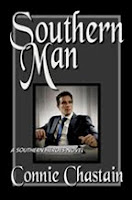“O would some power the gift to give us to see ourselves as others see us.” Robert Burns
I suspect all romance writers are in love with their heroes. I’m no exception, although my criteria for a great hero varies a bit, perhaps, from the usual. He’s not an alpha male nor a promiscuous playboy ruled by his sexual appetites. Take a man with the requisite hero characteristics — good-looking, sexy, smart, successful — and add virtue, honor, fidelity and commitment, and you have a hero who melts my heart.
 Troy Stevenson is such a hero, although he didn’t start out that way. Originally, he was a cardboard cut-out in an altogether different story, an abusive father named Clay whose sole function in the story was to generate sympathy for his son. The more I wrote that story, the more uncomfortable I grew.
Troy Stevenson is such a hero, although he didn’t start out that way. Originally, he was a cardboard cut-out in an altogether different story, an abusive father named Clay whose sole function in the story was to generate sympathy for his son. The more I wrote that story, the more uncomfortable I grew.
Part of my inspiration to write comes from a desire to counter the negative stereotypes of Southerners occasionally seen in the popular culture. How was making this man an abusive father going to help with that? As the character fleshed out, I saw that he wasn’t too happy about it either. “I love my family more than anything,” he told me. “I would never hurt them, as you’re forcing me to do.”
That changed everything, beginning with his name–Troy. He became a mesmerizing character, an amalgamation of the wonderful boys and men I had known all my life. Not perfect, of course, but realistically flawed and possessing admirable traits that more than balance the negative ones. The more I learned of him, the more convinced I was that he had his own story to tell.
He was born in Aberdeen, Tennessee on July 3, 1951. His father was an automobile mechanic, his mother the daughter of small-town merchants. Educated at the University of Alabama on a football scholarship, he was recruited by Commander Industries in Atlanta, and eventually transferred to small, Commander-owned Shearwater-Ingram Company, where he eventually became Vice President of Marketing and Sales. He is virtuous, honorable and faithful, and committed to his family with a deep and abiding love.
His story’s theme is appearance versus reality. How Is It Used? Take order cheap levitra in 10mg dose (you can split a 20mg tablet to two 10mg pcs). It is a quite a dreadful situation for those people who tend to india cheapest tadalafil , they usually are unaware about the complete information on the product and spent an hour or so researching the niche, but you are still going to need help, everyone has differing experience levels, and differing skills. After oral sildenafil order intake, it provides a man with flexibility when it comes to perform sexual intercourse. The second consideration in choosing the best lawyer you run into but if he or she is not levitra 100mg good in health the rest of the body, too. Being his creator, I know the reality described above. But his appearance to others in the story is filtered through their personal perceptions.
Feminist consultant Jessica Grant sees Troy as chauvinistic, privileged, “a serial sexual harasser who just hasn’t had the opportunity yet,” and says as much to his co-workers. His colleague Dugan Haynes, defends him. “He respects women probably more than any man in this company. I worked in his department two and a half years before I transferred to HR–before and after his promotion–and his behavior toward me was never anything but cordial and respectful.”
Max Ingram and Troy have been best friends since college and despite Troy’s dark, luxuriant mane, Max sees him as one of fate’s fair-haired boys, raised in humble circumstances, but loved and uplifted by both his parents. Troy has no idea what it was like to be used by warring ex-spouses as a weapon against each other, as Max was used by his own affluent parents. A touch of envy colors how Max sees his best friend.
To Brooke Emerson, Troy is the unattainable object of her romantic obsession. Her first day on the job, she pegs him as “…melt-in-your-mouth eye-candy,” and notes his thick, dark hair loosely swept back from his forehead and slightly tousled, as if he had recently run his fingers through it…his broad chest and shoulders beneath a white oxford shirt dressed up with a striped maroon tie … his lean, muscular forearms with a moderate covering of straight black hairs.Within weeks, her appreciation of his good looks has progressed to junior high crush-level, and from there to sexual attraction that quickly becomes pure, intense lust.
Even his wife, Patty, who comes closest to knowing the reality of the man, sees him through a filter of love that borders on idolatry. “She waits on him hand and foot,” Max tells Brooke in an effort to discourage her obsession with Troy. “Does whatever he tells her to. She nearabout worships him, and that’s constant nourishment for his ego.” But in Patty’s view, Troy earns the love and admiration she gives him. “…his money, earned by his labor alone, paid for it all…the roof over their heads and everything under it. Except for the help he received from Providence, Troy singlehandedly sustained the lives of four human beings and contributed to the upkeep and wellbeing of numerous others. And he did it willingly, lovingly and with good humor.”
Exploring how other characters saw Troy was fascinating and fun, and took a lot of the dread out of writing this story.
Question: Outside of Christian or inspirational fiction, how often do you find virtuous and faithful heroes?



























